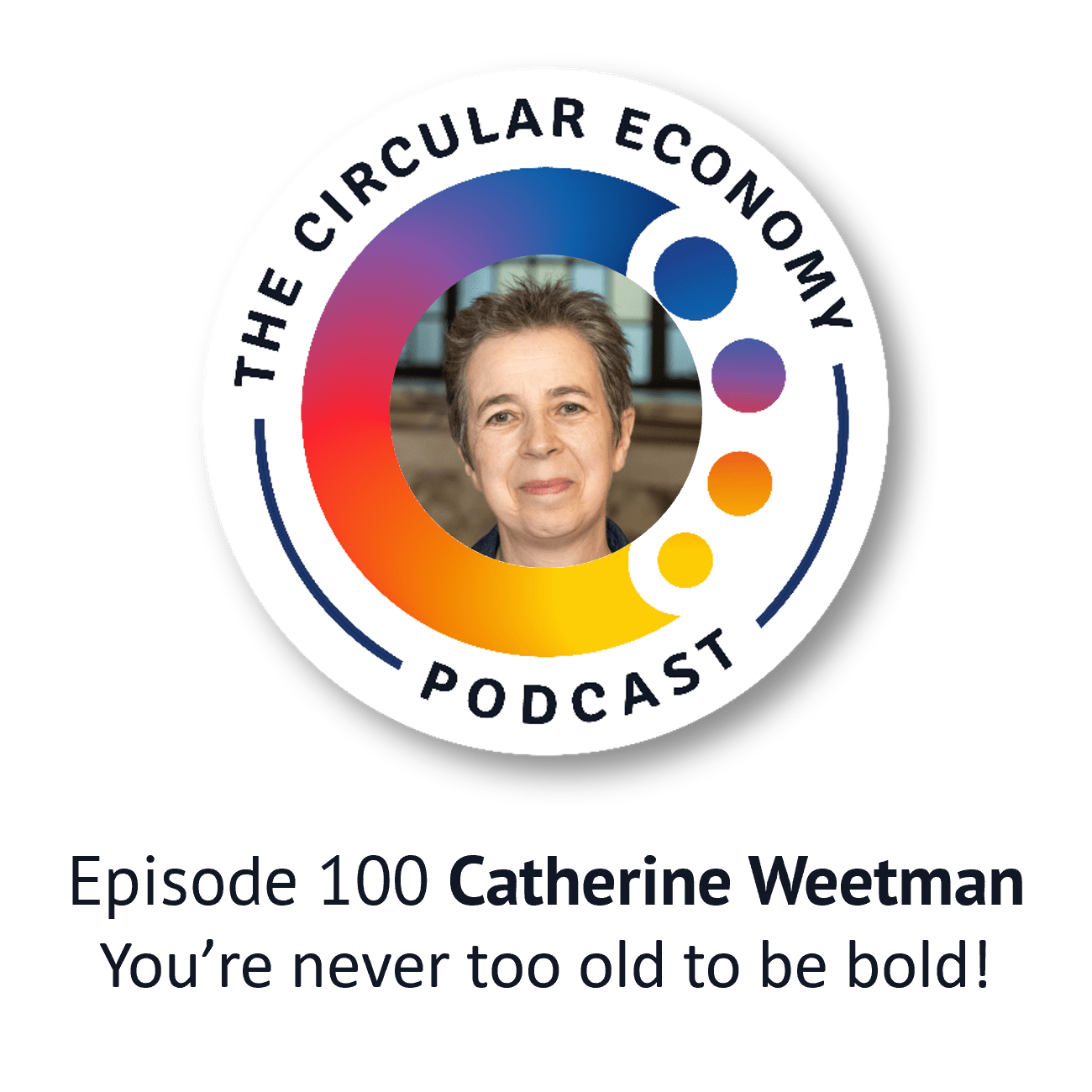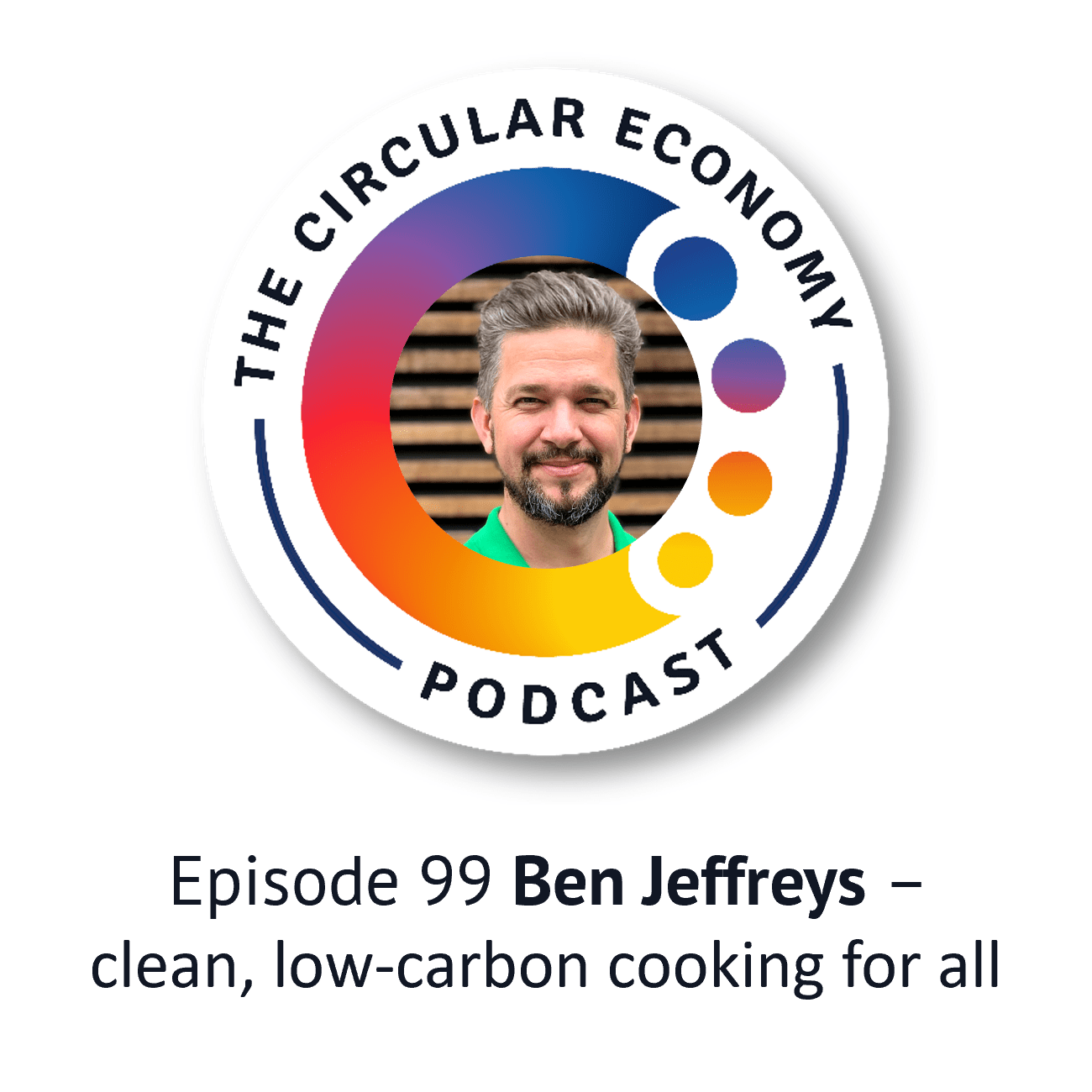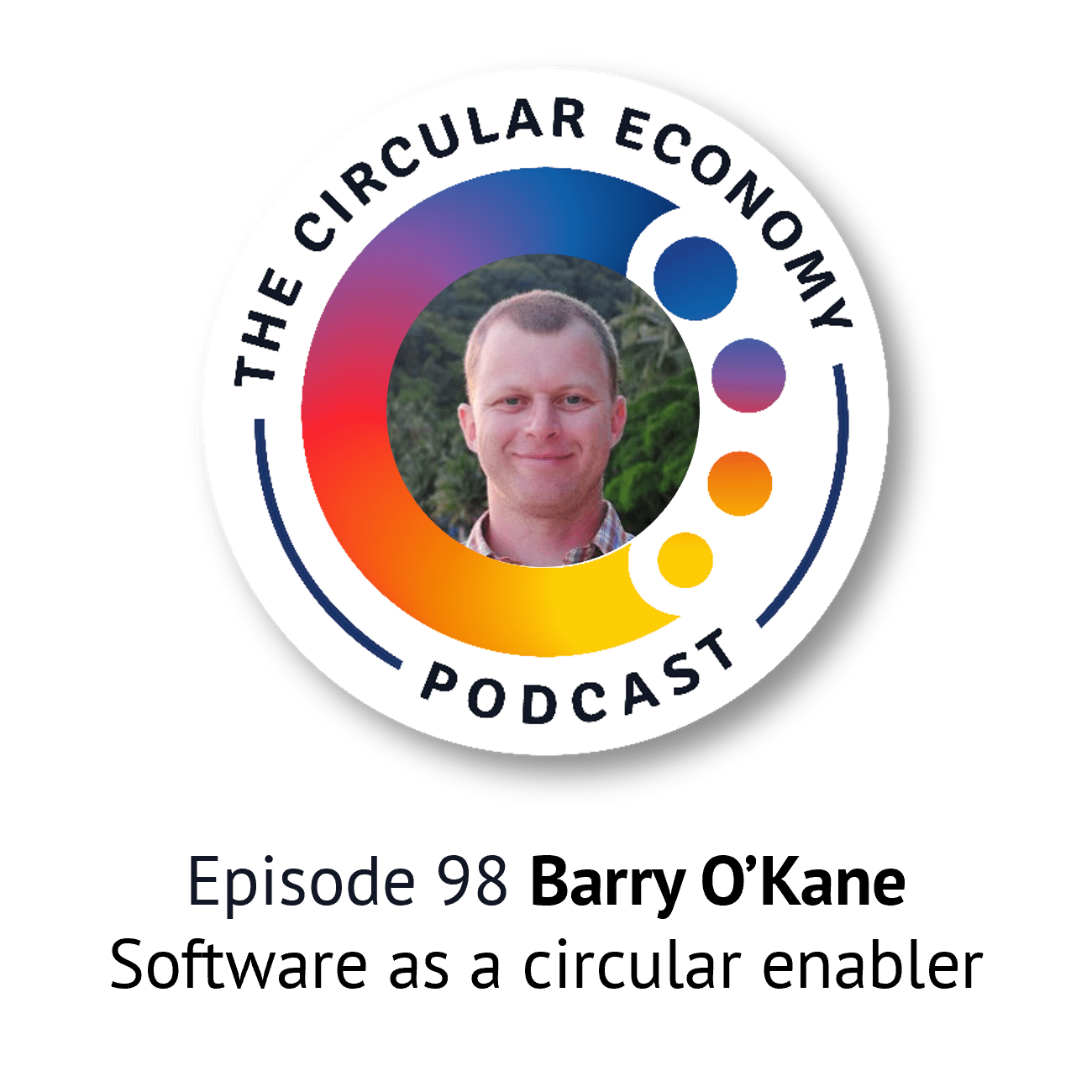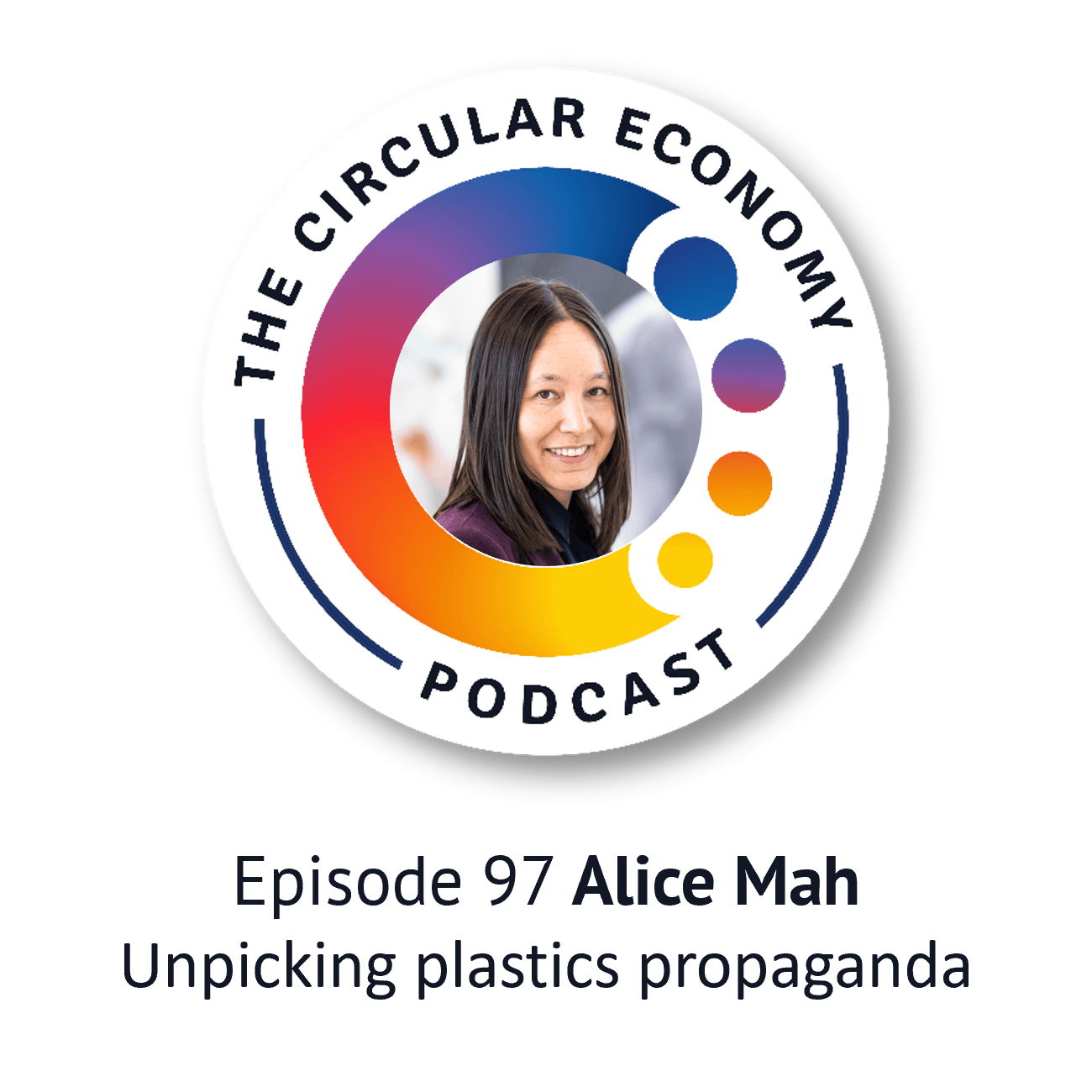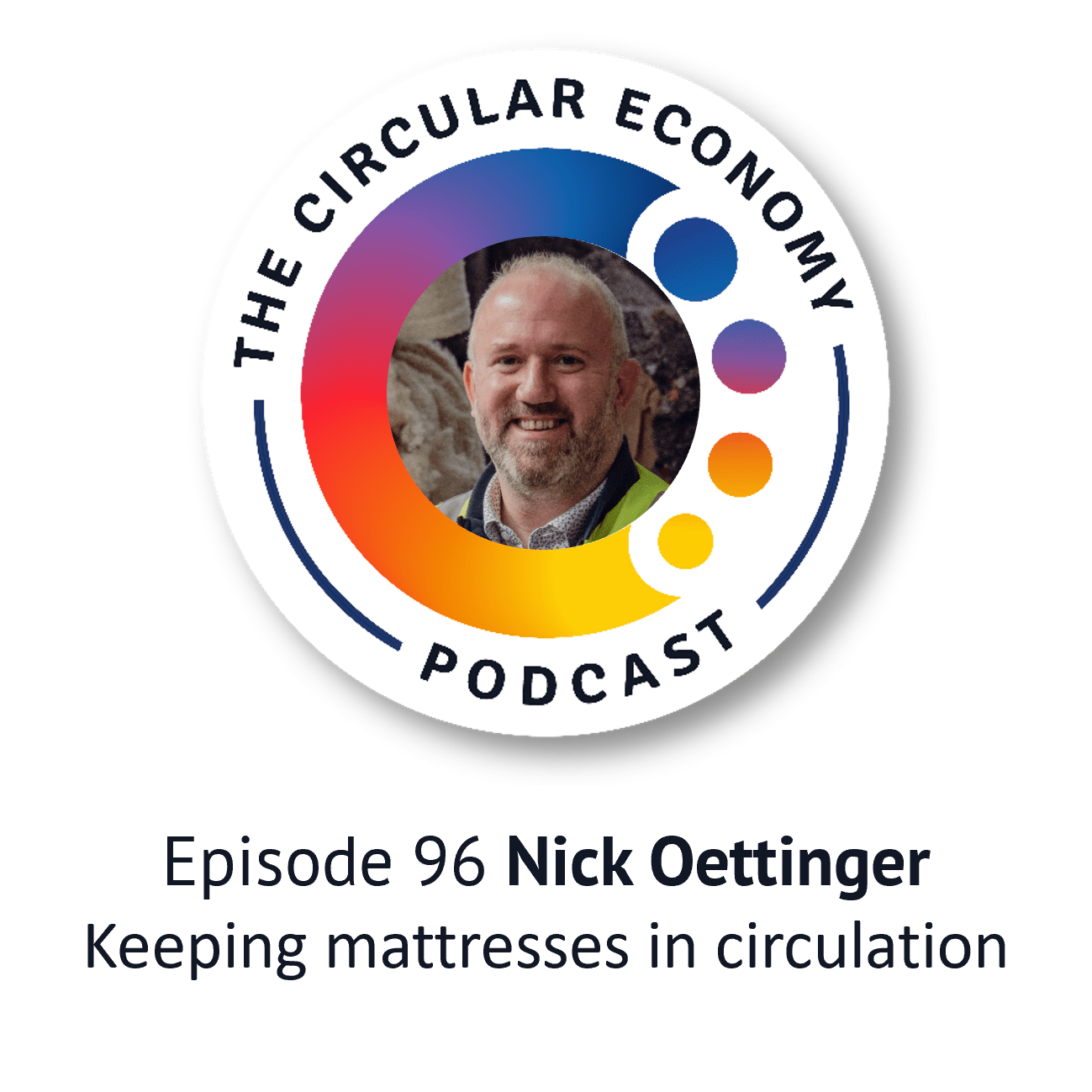Podcast: Play in new window | Download
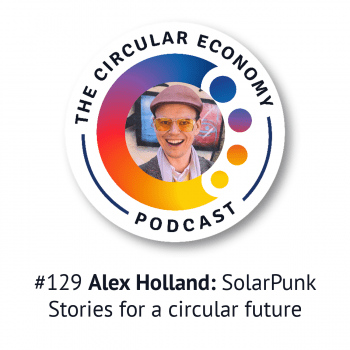
How do we draw people towards a deliciously sustainable future?
In this episode, we’re going off at a slight tangent: to explore how we can bring people into this world, to feel they have agency and to see an exciting, meaningful future where we do better, with less.
We’re going to hear about a way of telling stories – that could be fiction to help people understand circular solutions, or it might be stories to help them imagine how circular products and services work in real life, helping them see how that’s more fulfilling than buying yet more stuff and adding to the problems of waste and pollution.
Alex Holland is the Founder of SolarPunk Stories, and has worked as a journalist in the UK, Venezuela and India.
Alex has an MA in Leadership for Sustainable Development and created the world’s first Tea Pub which was also Crowdcube’s most-shared startup.
SolarPunk is a much more optimistic genre than dystopian fiction – it’s more like the Thrutopian concept set out by Professor Rupert Read in an article for the Huffington Post, a few years ago.
Utopias are too fantastical, whereas dystopias can be useless, even dangerously doom-mongering. Instead, we can create Thrutopias: stories that help us see a way through the challenges we face, that help us build a vision for the future we want to be part of: a regenerative, fair and inclusive future that we can be proud of. Stories that help us to imagine, to feel what it would be like, and to design the political and economic systems to get us through.
International speaker, author and strategic advisor, Catherine Weetman helps people discover why circular, regenerative and fair solutions are better for people, planet – and prosperity.
Catherine’s award-winning book: A Circular Economy Handbook: How to Build a More Resilient, Competitive and Sustainable Business includes lots of practical examples and tips on getting started.
Stay in touch for free insights and updates…
Read on for more on our guest and links to the people, organisations and other resources we mention.
Don’t forget, you can subscribe to the podcast series on iTunes, Google Podcasts, PlayerFM, Spotify, TuneIn, or search for “circular economy” in your favourite podcast app. Stay in touch to get free insights and updates, direct to your inbox…
You can also use our interactive, searchable podcast index to find episodes by sector, by region or by circular strategy. Plus, there is now a regular Circular Economy Podcast newsletter, so you get the latest episode show notes and links delivered to your inbox on Sunday morning, each fortnight. The newsletter includes a link to the episode page on our website, with an audio player. You can subscribe by clicking this link to update your preferences.
Links we mention in the episode:
- Circular Economy Podcast on LinkedIn: linkedin.com/showcase/circular-economy-podcast/
- Circular Economy Podcast website: circulareconomypodcast.com
- Catherine Weetman on LinkedIn: https://www.linkedin.com/in/catherine-weetman-9419107/
- A Circular Economy Handbook: How to Build a More Resilient, Competitive and Sustainable Business – buy from any good bookseller, or direct from the publisher Kogan Page, which ships worldwide (free shipping to UK and US) https://www.koganpage.com/CircEcon2
- Interactive podcast index https://www.rethinkglobal.info/circular-economy-podcast-index/
- Rethink Global www.rethinkglobal.info
- Sign up to get the podcast player and shownotes for each new episode emailed to your inbox
Links for our guest:
- Sign up to SolarPunk Stories fortnightly substack newsletter: https://solarpunkstories.substack.com/
- A Solar Punk story: https://www.solarpunkstories.com/buy-our-1st-story
- Deep dive article on What SolarPunk is, isn’t and why it matters here >
- https://www.solarpunkstories.com/blog/what-is-solarpunk-one-thing-or-many
- A shout-out for CoFounders for SolarPunk Style here https://www.solarpunkstories.com/cofounders-wanted
- Yogurt commercial https://www.youtube.com/watch?v=z-Ng5ZvrDm4
- Alex Hollands’s communications agency, Merlin Branding: helping mission-led business build their tribe of customers by telling their origin story in a way that works https://www.merlinbranding.com/
Books, people and organisations we mentioned
- Katie Patrick’s podcast How to Save the Planet https://podcasters.spotify.com/pod/show/katiepatrick
- Futerra’s Sell the Sizzle report https://www.wearefuterra.com/thinks/sell-the-sizzle or https://climate-pact.europa.eu/get-inspired/resources/sell-sizzle_en
- Solarpunk VC https://solarpunkvc.com/
- Sojo – fixing the fashion industry by powering online tailoring and repairs https://www.sojo.uk/
- Ken Webster talking about the circular ECONOMY, including the importance of the global commons and Universal Basic Dividends, in Episodes 119 and 119 Bonus https://www.rethinkglobal.info/119-ken-webster-the-circular-economy/ https://www.rethinkglobal.info/119-bonus-ken-webster-the-circular-economy-part-2/
- Rupert Read’s article on Thrutopian fiction https://www.huffingtonpost.co.uk/rupert-read/thrutopia-why-neither-dys_b_18372090.html
Guest bio
Alex Holland is the Founder of SolarPunk Stories. He has worked as a journalist in the UK, Venezuela and India. After that he led the campaign to stop Brixton Market getting knocked down and went on to represent Brixton Hill as a local government Councillor.
He’s got an MA in Leadership for Sustainable Development and created the world’s first Tea Pub which was Crowdcube’s most-shared startup.
He loves reading, writing and is one of these lost tribes of posh people who was born in Brixton.
Playlist: getting started with the circular economy…
Want to know more about the what the circular economy really is, and how it can help your business? Here’s a playlist to help you get to grips with the concept, how it creates value, and the common myths (spoiler alert – it’s much more than recycling!)
- #1 What is the circular economy: A quick intro to explain what the circular economy is and why it’s important. We explore how it helps create better products and services, and at the same time helps to make a better world. I break it down into my 5 circular economy components, helping you think about each part of your business.
- #2 The linear economy and your risk checklist: We dig a bit deeper into the way we do business now, the linear economy, and why that’s creating problems for business, society and our living planet. Also, we’ll look at the risks that emerge from those big-picture issues, and how they might affect your organisation.
- #90 Does circular mean it’s sustainable? Catherine Weetman is worried that companies are using circular economy solutions to grow their business (and their footprints).
- #101 Circular is better for people, planet and profit! How three simple strategies can help you get started with circular and regenerative solutions that are better for people, planet and profit.
- #120 Priorities are changing: people find life is better when we care for and share things – circular economy strategies make that better for business, too.
And here’s Catherine’s guide: What is the circular economy?
Want to dig deeper?
Why not buy Catherine’s award-winning book, A Circular Economy Handbook: How to Build a More Resilient, Competitive and Sustainable Business. This comprehensive guide uses a bottom-up, practical approach, and includes hundreds of real examples from around the world, to help you really ‘get’ the circular economy. Even better, you’ll be inspired with ideas to make your own business more competitive, resilient and sustainable.
Please let us know what you think of the podcast – and we’d love it if you could leave us a review on iTunes, or wherever you find your podcasts. Or send us an email…
Please let us know what you think of the podcast – and we’d love it if you could leave us a review on iTunes, or wherever you find your podcasts. Or send us an email…
Podcast music
Thanks to Belinda O’Hooley and Heidi Tidow, otherwise known as the brilliant, inventive and generous folk duo, O’Hooley & Tidow for allowing me to use the instrumentals from the live version of Summat’s Brewin’ as music for the podcast. You can find the whole track (inspired by the Copper Family song “Oh Good Ale”) on their album, also called Summat’s Brewin’. Or, follow them on Twitter.
